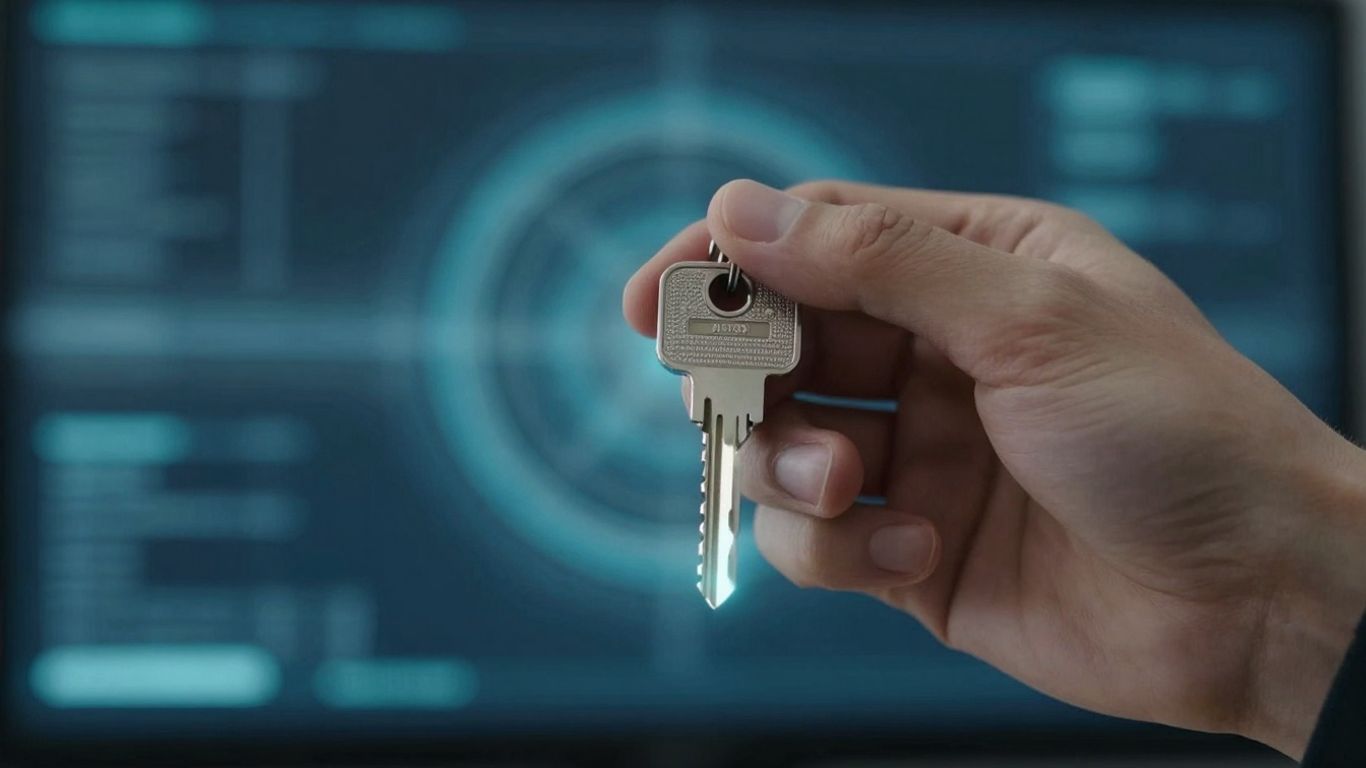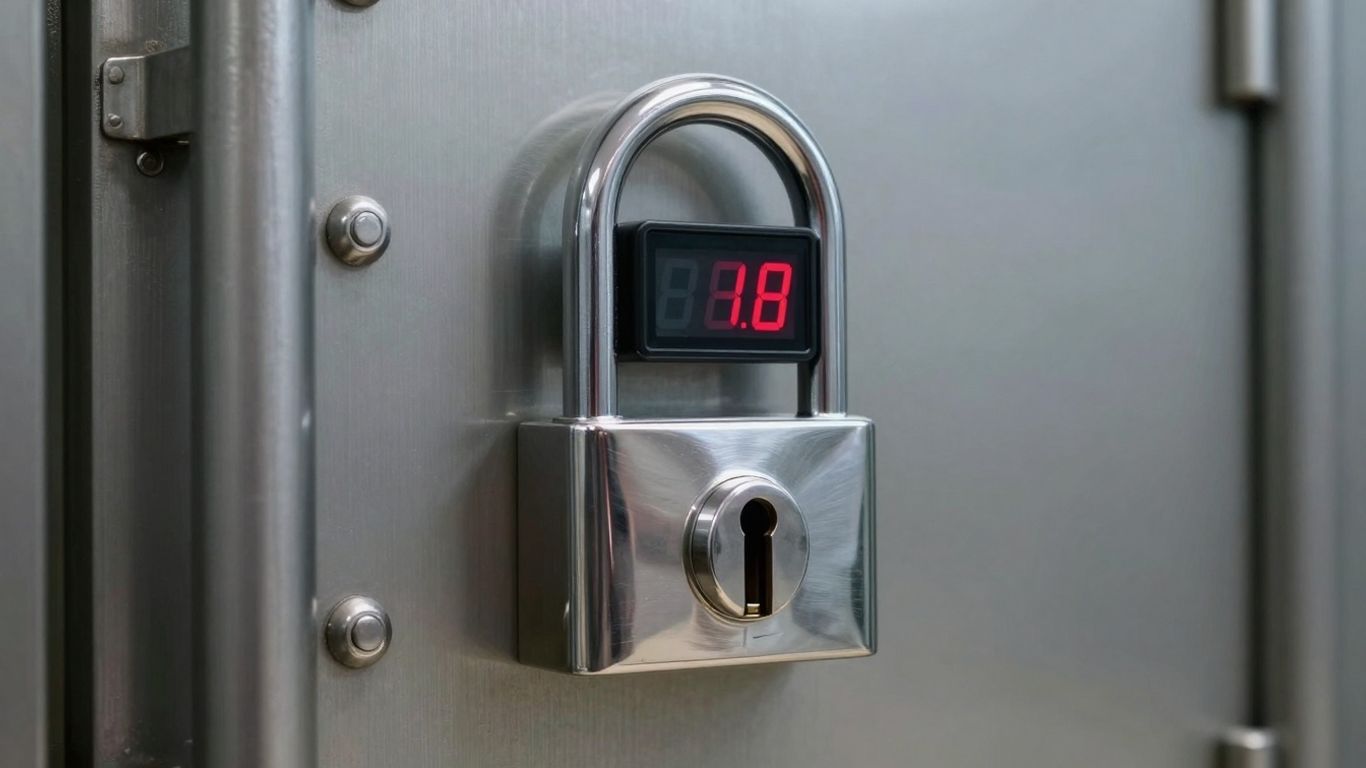[ newsletter ]
Stay ahead of Web3 threats—subscribe to our newsletter for the latest in blockchain security insights and updates.
Thank you! Your submission has been received!
Oops! Something went wrong. Please try again.
Explore AI's role in DeFi contract risk management, enhancing security and fraud detection in decentralized finance.





DeFi, or decentralized finance, is like the wild west of the financial world, full of opportunities but also risks. AI is stepping in to help manage those risks, especially when it comes to smart contracts. These digital agreements are great but can be a bit tricky. That's where AI comes in, helping to spot issues before they become big problems. This article will explore how AI is making DeFi safer and what that means for the future.
AI is like the unsung hero in the world of DeFi, quietly working behind the scenes to make things safer. It sifts through mountains of data, picking out patterns that humans might miss. By analyzing transaction histories and market trends, AI helps assess risks that could affect DeFi contracts. This means fewer nasty surprises and more informed decision-making.
Keeping an eye on transactions is crucial in DeFi. AI steps up to the plate with techniques like anomaly detection and real-time monitoring. These systems can spot something fishy in seconds, alerting users to potential fraud. Here’s how it works:
Smart contracts are the backbone of DeFi, and AI is making them even smarter. By automating decision-making processes, AI can enhance the efficiency and security of these contracts. Here’s what AI brings to the table:
AI is not just about preventing risks; it’s about creating a safer, more reliable DeFi environment. As AI continues to evolve, its role in DeFi will only grow, offering new ways to protect and optimize financial transactions.
Smart contracts are like the backbone of DeFi, but they can have weak spots. Reentrancy attacks are a big one—where an attacker keeps calling a function before the previous one wraps up, messing with the contract's state. Arithmetic errors can also cause trouble, leading to unexpected behavior or even loss of funds. And then there's the issue of access control. If the contract doesn't properly limit who can do what, someone with bad intentions might exploit it.
AI is stepping up to help make DeFi safer. It can spot sketchy transactions as they happen, using machine learning to flag anything fishy. Here's how AI is making a difference:
Some projects are already reaping the benefits of AI in DeFi security. Project A, for example, cut down vulnerabilities by 70% using AI tools. Another, Project B, uses real-time monitoring to catch issues early. Then there's Project C, which mixes AI with human insight for a more thorough security check.
By integrating AI into their systems, DeFi platforms are not just enhancing security; they're building trust with their users. This trust is crucial for the growth and sustainability of decentralized finance.

In the world of decentralized finance (DeFi), fraud prevention is a top priority. AI's ability to analyze user behavior is a game-changer here. By monitoring how users interact with platforms, AI can spot unusual patterns that suggest fraudulent behavior. This isn't just about catching fraudsters in the act; it's about understanding how they operate and predicting their next move. AI doesn't just react; it anticipates. This proactive approach helps in curbing fraud before it escalates into a major issue.
Automated alerts are another weapon in the fight against fraud. AI systems can send real-time alerts to users and platforms when they detect suspicious activities. Imagine an AI system that not only flags a dubious transaction but also suggests immediate actions to counteract it. These alerts are like having a security guard who never sleeps, always on the lookout for potential threats. This kind of vigilance is crucial in maintaining trust in DeFi platforms.
Machine learning models are the backbone of risk classification in DeFi. These models are trained on historical data to recognize patterns associated with fraudulent transactions. They can differentiate between normal and suspicious activities, providing a reliable method for classifying risk. The beauty of machine learning is that it gets better over time. As more data is processed, these models become more accurate, reducing false positives and negatives. This continuous learning process is essential for staying ahead of fraudsters.

Smart contract audits are crucial, and AI is making them way more efficient. Static analysis examines code without executing it, quickly spotting structural issues. Meanwhile, dynamic analysis simulates different scenarios to find hidden bugs. Together, they give a full picture of a smart contract's security. Imagine finding a bug before it even causes a problem—these methods make that possible.
AI-powered tools are transforming how we review smart contracts. These tools can scan vast amounts of code faster than any human, identifying common vulnerabilities like reentrancy attacks or integer overflows. Automated reviews free up human auditors to focus on complex issues that machines might miss. This combo of AI and human insight ensures a thorough and reliable audit.
AI in smart contract audits isn't just about speed—it's about precision too. Here are some benefits:
The integration of AI in auditing not only boosts efficiency but also enhances security, making blockchain applications more trustworthy.
AI is changing the game, making audits faster and more accurate. As these technologies develop, the future of smart contract security looks bright.
Creating a trustworthy environment in DeFi is like building a sturdy house. You need a solid base and reliable tools. Here are some ways to make the DeFi space more secure:
Building a secure blockchain is like constructing a safe house. It requires a strong foundation, the right tools, and teamwork to make it a safe place to live. It's challenging but achievable with the right approach.
Educating users is crucial. Many folks are new to DeFi and might not know the risks. Here’s how we can help them:
Transparency is vital in AI-driven DeFi solutions. Users need to know how their data is used and how decisions are made. Here’s how to ensure transparency:
Building trust in DeFi requires a mix of technology, education, and openness. By focusing on these areas, we can create a safer and more reliable ecosystem for everyone.
AI is transforming how we manage risks in DeFi, and it's only getting better. Imagine AI systems that not only detect threats but also fix issues before they become problems. We're seeing a shift towards more proactive AI solutions that are smarter and faster. As algorithms improve, they can predict and react to market changes with incredible precision. This means better security and efficiency in DeFi transactions.
With great power comes great responsibility, right? As AI gets more advanced, new risks pop up. Think about data privacy and the potential for tech misuse. But don't worry, the DeFi community is on it. They're developing strategies to tackle these challenges head-on. Expect to see more collaborative efforts between tech developers and regulators to keep things in check.
AI is amazing, but it can't do everything by itself. Humans still play a crucial role in overseeing AI systems. Imagine it as a partnership where AI handles the heavy lifting, and humans step in for the complex stuff. This balance ensures that AI-driven solutions remain effective and trustworthy. So, while AI takes center stage, human expertise is still very much part of the equation.
As DeFi continues to evolve, the integration of AI will be key in managing risks effectively. It's about creating a system where technology and human insight work together for a safer, more robust DeFi ecosystem.
Expect these trends to shape the future of DeFi, making it more resilient and secure. As AI technologies advance, the potential for innovation in risk management is immense, paving the way for a new era in decentralized finance.
Navigating the regulatory landscape in the decentralized finance (DeFi) space is like trying to solve a puzzle with missing pieces. The decentralized nature of DeFi makes it tough for authorities to enforce regulations, which can lead to a wild west scenario. Balancing innovation with compliance is tricky, and with AI thrown into the mix, it gets even more complicated. Finding a way to regulate without stifling creativity is crucial.
Data privacy is another biggie. AI systems need lots of data to function well, but this raises concerns about user privacy. DeFi platforms must tread carefully to ensure they’re not violating data protection laws like GDPR. It’s a tough balancing act between using data to enhance security and respecting user privacy.
When it comes to scalability, both AI and blockchain are demanding. AI algorithms can be resource hogs, and when they’re integrated with blockchain tech, it can slow everything down. This can lead to higher transaction fees and sluggish performance, which isn’t ideal for users who expect lightning-fast transactions. Finding ways to scale efficiently is a must.
In the ever-evolving world of DeFi, the integration of AI presents both opportunities and hurdles. While AI can significantly enhance security and efficiency, addressing these challenges is key to unlocking its full potential.
In the end, using AI to manage risks in DeFi is like having a trusty sidekick in the wild west of finance. It's not just about spotting the bad guys; it's about making the whole system safer and more reliable. Sure, AI isn't perfect, and there are still bumps in the road, but it's a step in the right direction. As DeFi keeps growing, AI will play a bigger role in keeping things in check. It's all about finding that balance between innovation and safety, making sure everyone can enjoy the benefits without the fear of losing their shirt. So, while the journey might be a bit bumpy, the destination looks promising with AI leading the charge.
DeFi stands for Decentralized Finance. It's a way of handling money and financial transactions without relying on traditional banks or financial institutions. Instead, it uses blockchain technology to enable peer-to-peer transactions.
AI helps make DeFi safer and more reliable by monitoring transactions in real-time, spotting unusual activities, and sending alerts when something seems off. It also helps in analyzing smart contracts to find and fix potential problems.
Smart contracts are like digital agreements that automatically execute when certain conditions are met. They're stored on a blockchain and can handle transactions without needing a middleman.
AI can study user behavior and transaction patterns to spot anything suspicious. It uses machine learning models to predict and identify potential fraud before it happens.
Security is crucial in DeFi because it involves handling real money and personal data. Any vulnerabilities can lead to financial losses or data breaches, so strong security measures are essential.
Some challenges include ensuring data privacy, managing regulatory concerns, and dealing with the complexity of integrating AI with blockchain technology. These need careful handling to ensure safe and effective use of AI in DeFi.


